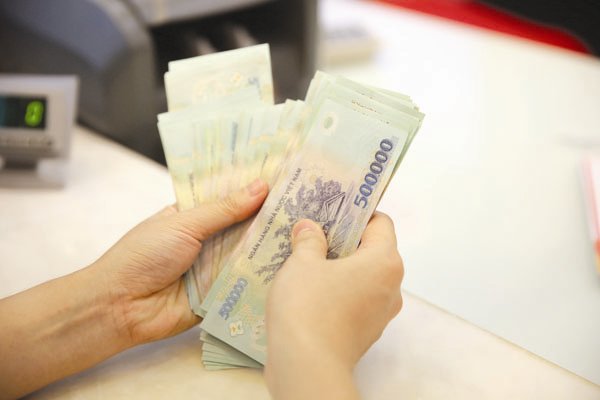State-owned Firms Divestment From Banks Proceeds Slowly

In mid-2017, the price of NVB of the National Citizen Bank listed on the Hanoi bourse, soared from VND4,500 to 10,000 per share. It later dropped to VND7,000 per share and bounced back to close to the VND10,000 threshold again.
With post-tax profit of VND22 billion in 2017, NVB is the most expensive listed share with a P/E at over 130.
The high price of NVB as welcomed by the bank’s shareholders, including Vinatex, which is still holding 6.9 million NVB.
Vinatex has been trying to divest from NVB in the last decade, but it failed because the price of NVB, like other banks’ shares, was below the break-even point.
Vinatex is still considered a state-owned enterprise (SOE) with the state holding 53.5 percent of Vinatex’s shares. Therefore, it must comply with state regulations on divestment, and must not sell shares at a loss.
Vinatex, a textile & garment corporation, like some state-owned enterprises, in 2006-2008 rushed to invest in non-core business fields, especially banking, finance and real estate.
PetroVietnam, the national oil and gas group, for example, invested VND800 billion in Ocean Bank, to buy 20 percent of the bank’s shares.
The investments in banks gobbled up SOEs’ big resources. A report of the Ministry of Finance (MOF) showed that state-owned economic groups and state-owned general corporations had invested VND10 trillion in banks by the end of 2010.
The investments in banks gobbled up SOEs’ big resources. A report of the Ministry of Finance (MOF) showed that state-owned economic groups and state-owned general corporations had invested VND10 trillion in banks by the end of 2010. |
Later, as experts repeatedly gave warnings about the risks of such investment, the government instructed state-owned enterprises to withdraw capital from non-core business fields. It said that divestment, which started in 2012, must be completed by 2015.
However, the process has been going very slowly. When it contributed capital to Ocean Bank, PetroVietnam did not think that capital withdrawal at a later date would be so complicated.
Divestment nearly fell into a deadlock in the 2010-2016 period. Nearly all the share auctions failed as the state could not find buyers willing to acquire shares at prices equal to the cost prices.
The capital withdrawal, however, has resumed again thanks to the warming of the stock market.
Eximbank has sold 9 percent of Sacombank shares (Eximbank is not a state-owned legal entity), while Vietcombank has divested from Saigon Bank and withdrawn some capital contributed to Orient Bank (OCB).
The remaining capital will continue to be withdrawn as Vietcombank plans to organize another bank share auction on April 17.
RELATED NEWS
When foreign banks want to leave Vietnamese partners
Central bank acts as credit fund goes rogue
Kim Chi
Vietjet Launches Four Routes Linking Top Destinations Of Việt Nam And India
Vietjet has officially launched four more services linking top destinations of Việt Nam and India including HCM Ci... Read more
Sacombank To Recruit 300 Staff By July
Sacombank is set to hire 300 employees by the end of July for positions like personal/corporate customer service ass... Read more
"Fly First-Pay Later" By MOVI And Vietjet Wins Technology Award
“Fly first - Pay later” is an 100 per cent online financial product that first appeared on the Vietnamese market... Read more
EXIM Thailand Opens Representative Office In HCM City, Inks Credit Deal With BIDV
The Export-Import Bank of Thailand has agreed to provide the Bank for Investment and Development of Việt Nam with ... Read more
Vietjet Launches Two Routes To India
The two newest routes, which will operate 3 and 4 round-trip flights per week respectively, are expected to continu... Read more
Vietjet Develops E-logistics, Pays 20 Per Cent Stock Dividend
The budget carrier expects to earn more than VNĐ22.3 trillion (US$959 million) in air transport revenue in 2022 Read more

